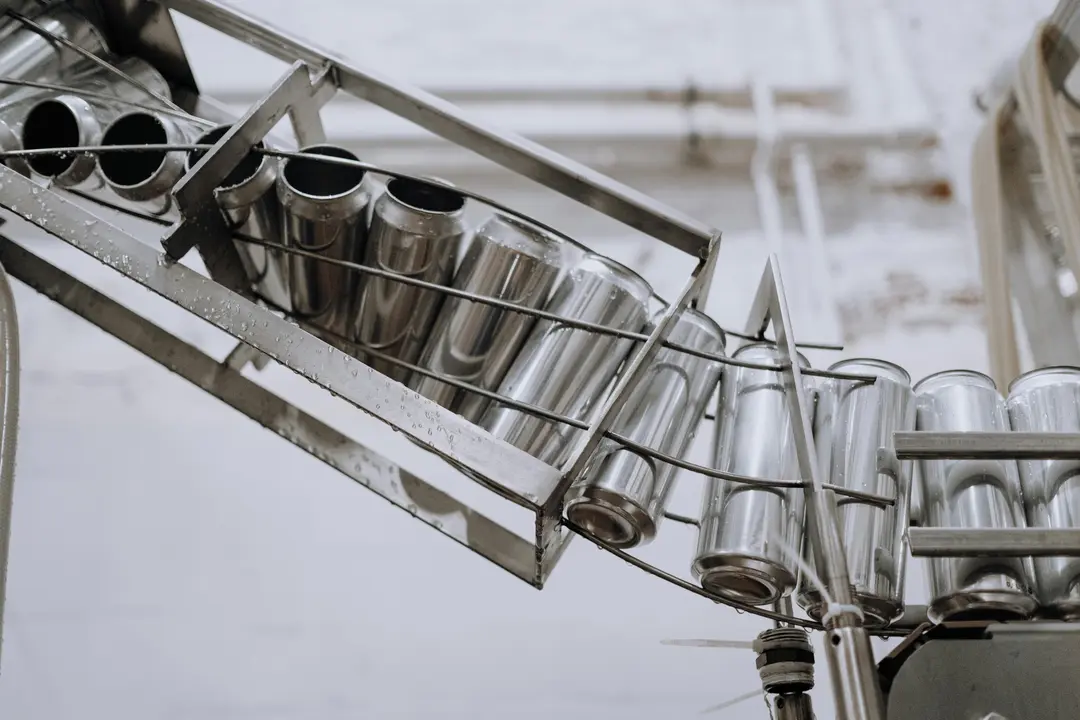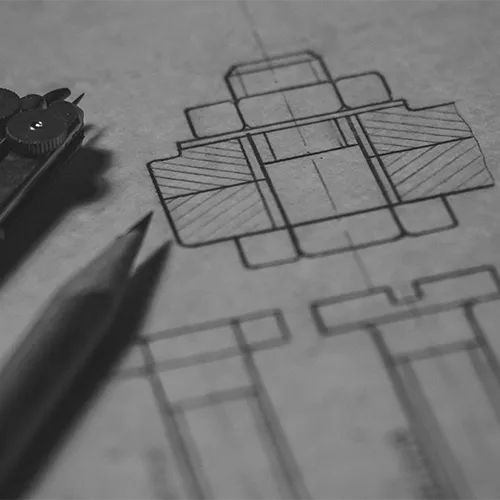What is ABS?
Acrylonitrile Butadiene Styrene (ABS) is an opaque thermoplastic made from a two phase polymer blend. ABS plastic is well known for its impact resistance and toughness.
Plastic ABS is both harder and more scratch resistant than PET and POM (Acetal), but has a lower thermal stability. The characteristics of basic ABS offer a wide scope for modification by varying the proportion of the components used in the polymer blend.
You may also see ABS referred to as:
- Trade names: TecaranTM, Royalite®, Terluran®, Absylux, Absoloy, Abson, Abstrene, ABStron, 4Lac, 4Loy, Abifor, Abistir, Absolac
- CAS Registry Number: 9003-56-9
- ABS Resin
- ABS Copolymer
Whilst ABS typically has good machinability, its difficulty to source does not make it our first choice. There are other engineering plastics that present very similar properties at a lower cost.
Main attributes
- Good machinability
- Easy bonding and weldability
- Gamma and x-ray resistant
- Good toughness and impact strength even at low temperatures
- High stiffness
- Good dimensional stability
- Can be used in temperatures ranging from -50°C to +70°C
- Opaque
- Electrically insulating
- Resists scratching
- Low density
- Good chemical resistance
- Good damping
- Low moisture absorption
- Not weather resistant
- Limited resistance to acid and caustic solutions
- Recyclable
Common Applications
- Computer & appliance housings
- Furniture components
- Structural components
- Panelling & fascias
- Electroplated parts
- Piping, tubing & fittings
- Handles
- Radiator grills
- Appliance & household items
Note for designers
ABS is not easy to source in the UK and more often than not, needs to be bought in from America. As such, it can be expensive with a long lead time.
There are several other engineering plastics that have similar attributes and yet offer significantly better value for money. Please call our engineering team to chat through your project.
UK Stock Sizes
ABS is not typically stocked as standard in the UK. Please see the 'notes for designers' for further information.
Technical Properties
Properties of TecaranTM ABS grey
Physical properties
| Physical Properties | Value |
| Density | 1.04 g/cm3 |
Mechanical properties
| Mechanical Properties | Value | Parameter | Norm | Notes |
| Modulus of elasticity (tensile test) | 1700 MPa | 1mm/min | DIN EN ISO 527-2 | For tensile test: specimen type 1b |
| Tensile strength | 32 MPa | 50mm/min | DIN EN ISO 527-2 | |
| Tensile strength at yield | 32 MPa | 50mm/min | DIN EN ISO 527-2 | |
| Elongation at yield | 3% | 50mm/min | DIN EN ISO 527-2 | |
| Elongation at break | 49% | 50mm/min | DIN EN ISO 527-2 | |
| Flexural strength | 49 MPa | 2mm/min, 10 N | DIN EN ISO 178 | For flexural test: support span 64mm, norm specimen |
| Modulus of elasticity (flexural test) | 1600 MPa | 2mm/min, 10 N | DIN EN ISO 178 | |
| Compression strength | 15/26/46 MPa | 1% / 2% / 5% | EN ISO 604 | Specimen 10x10x10mm |
| Compression modulus | 1400 MPa | 5mm/min, 10 N | EN ISO 604 | Specimen 10x10x50mm, modulus range between 0.5 and 1% compression |
| Impact strength (Charpy) | Not Broken | max. 7.5J | DIN EN ISO 179-1eU | For Charpy test: support span 64mm, norm specimen |
| Notched impact strength (Charpy) | 34 KJ/m2 | max. 7.5J | DIN EN ISO 179-1eA | |
| Ball indentation hardness | 74 MPa | | ISO 2039-1 | Specimen in 4mm thickness |
Thermal properties
| Thermal Properties | Value | Parameter | Norm | Notes |
| Glass transition temperature | 104°C | | DIN EN ISO 11357 | Found in public sources |
| Service temperature | 100°C | short term | NN | Found in public sources. Individual testing regarding application conditions is mandatory |
| Service temperature | 75°C | long term | NN | |
Electrical properties
| Electrical Properties | Value | Norm |
| Specific surface resistance | 1014 O | DIN IEC 60093 |
| Specific volume resistance | 1014 O*cm | DIN IEC 60093 |
Other properties
| Other Properties | Value | Parameter | Norm | Notes |
| Flammability (UL94) | HB | Corresponding to | DIN IEC 60695-11-10 | Corresponding to means no listing at UL (yellow card). Individual testing regarding application conditions is mandatory |
| Water absorption | 0.2% | 24h / 96h (23°C) | DIN EN ISO 62 | Ø ca. 50mm, h=13mm |
 Get a quote
Get a quote






